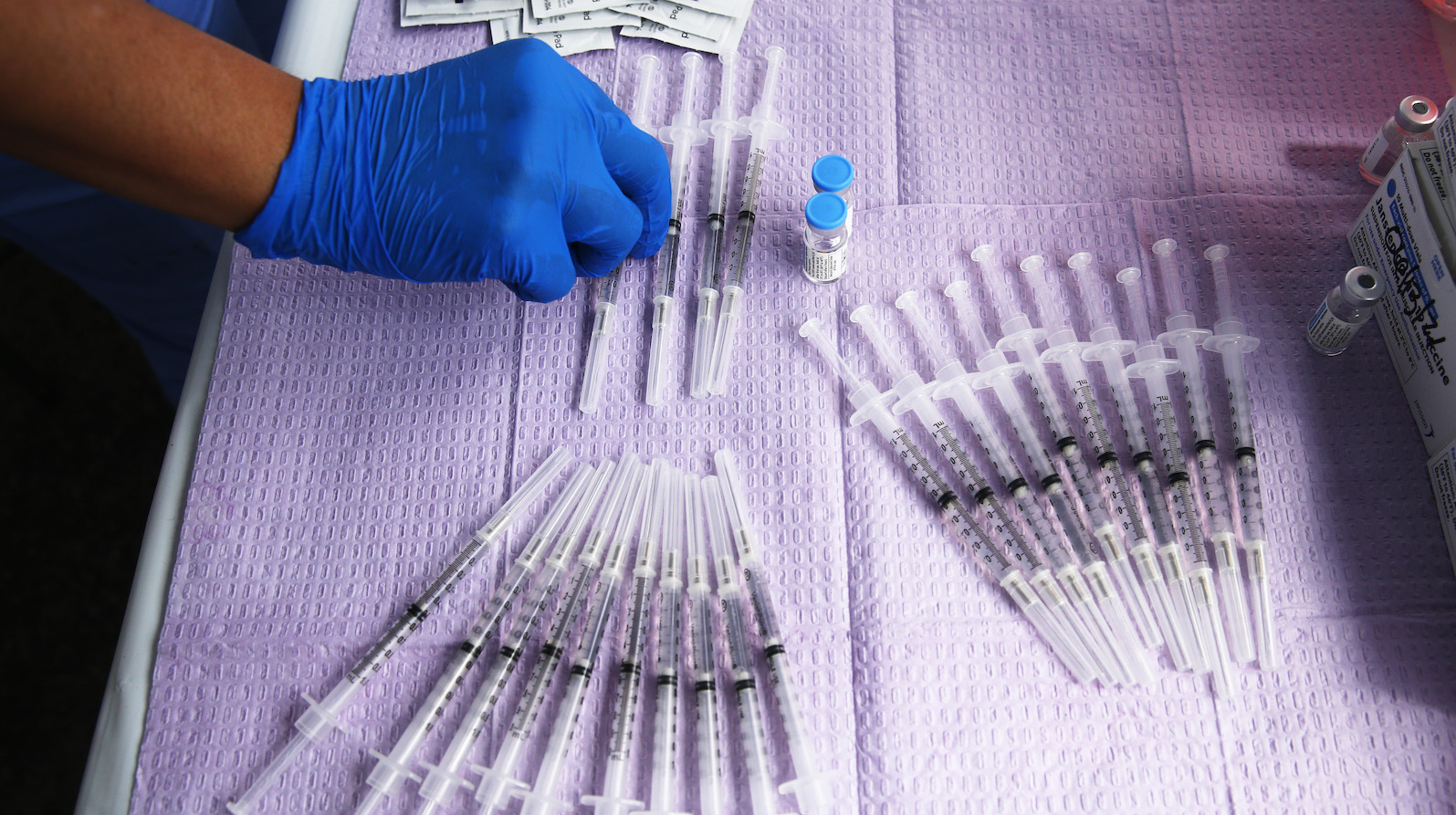Blood clots in coronavirus patients 2:29
(CNN Spanish) -
Blood clots are a strange side effect that a handful of people have presented after receiving the AstraZeneca vaccines in Europe and Johnson & Johnson in the United States.
What is in common between these vaccines?
And why do people get clots?
In this episode, Dr. Elmer Huerta explains the phenomenon to us.
You can listen to this episode on Spotify or your favorite podcast platform or read the transcript below.
Hello, I am Dr. Elmer Huerta and this is your daily dose of information about the new coronavirus.
Information that we hope will be useful to take care of your health and that of your family.
Today we will see what relationship exists between the use of certain vaccines against covid-19 and the formation of clots.
What are clots?
First of all, let us remember that the blood clotting system is vital for the existence of the human being.
It is responsible for hemostasis, a process by which - in the event of a trauma that causes a blood vessel rupture - the person is prevented from having a lethal hemorrhage.
advertising
Coagulation, in simple words, is the process by which the blood changes its physical state.
It goes from a liquid element to a gel or jelly, which is called a clot.
Simplifying the complicated process of coagulation, we can say that -when an injury occurs- the formation of a clot implies the formation of two fundamental elements:
A plug of cells called platelets that acts like a cork,
And a patch of protein called fibrin, which seals the wound to prevent bleeding.
Coagulation disorders then involve - depending on the cause and the mechanism - two opposite processes: either bleeding or clot formation.
Bleeding disorders in humans
In other words, some bleeding disorders - the use of too much blood-thinning medications, for example - can lead to bleeding.
While others - such as being immobilized for a long time - cause the blood to clot within the blood vessels.
This forms what is medically called a thrombus or clot, which, when detached, causes some pieces of these clots - called emboli - to travel through the blood, lodging in vital organs.
That is why diseases that form blood clots are called thromboembolic diseases, which can cause strokes or heart attacks.
Now we can understand the news of the last few days, which relates the formation of clots, with the administration of the AstraZeneca and Johnson & Johnson vaccines.
Vaccines and blood clots
While the AstraZeneca vaccine has been linked to clot formation since February in Europe, the world was shocked on April 13, when the US Food and Drug Administration (FDA) recommended suspending its vaccination program with the vaccine. Johnson & Johnson for having some cases of clots in people immunized with this vaccine.
Immediately afterwards, it emerged that Johnson & Johnson also postponed the launch of its vaccine in Europe.
Let's look first at the Johnson & Johnson case.
The Johnson & Johnson and AstraZeneca Cases
What was reported is that the United States Centers for Disease Control and Prevention (CDC) asked the FDA to temporarily suspend the use of that vaccine because six cases of thromboembolic or clot-forming disease were identified out of 6, 8 million people immunized with this vaccine, known cases, occurred 6 to 13 days after vaccination and in women between 18 and 48 years.
The preventive measure will force the CDC's Commission on Immunization Practices to analyze the case on April 14 and decide the way forward.
In the meantime, if a person received the J&J vaccine more than three weeks ago, they should not worry about clots.
And people who received their J&J vaccine less than three months ago should watch for symptoms such as:
Headaches,
Strange stomach aches
Swelling of the legs
Shortness of breath,
And they must obviously go to an emergency or to their doctor, saying they recently received the J&J vaccine.
In the case of the AstraZeneca vaccine, cases of thromboembolic disease began to be identified in vaccinated people for several weeks, prompting some countries to start suspending the use of this vaccine.
Two recent articles, published April 9 in The New England Journal of Medicine by Norwegian and German researchers, identify the cause of the problem and directly link the use of the vaccine to the development of clots.
Why is this strange reaction happening?
What happens, the researchers say, is that the formation of clots in vaccinated people is caused by the vaccine stimulating the production of antibodies directed against a blood substance called platelet factor 4, which causes platelets to clump together favoring the formation of clots
The problem is that when platelets agglutinate, they can decrease in such number that the person can present, in addition to clots, bleeding complications.
The complication has been named by German researchers as vaccine-induced immune thrombotic thrombocytopenia.
Thrombocytopenia means low platelets, and thrombotic means clots.
German researchers describe in detail 11 of 28 cases studied in people between 22 and 49 years old - of which six died - and presented between 5 and 16 days after immunization with the AstraZeneca vaccine.
In the Norwegian report, five cases are analyzed, occurring 7 to 10 days after vaccination in people between 32 and 54 years old, with no cases having been presented after March 20, the date on which the Norwegian government suspended vaccination with AstraZeneca.
What do the authorities say?
The European Medicines Agency (EMA) reported last week that as of April 4, 169 cases of thrombosis and 53 cases of bleeding were registered in its database among 34 million people who received the first dose of the AstraZeneca vaccine in Europe and the United Kingdom.
The UK had 79 reports of these rare thrombotic events in people aged 18 to 79 years, of which 19 were fatal, out of 20.2 million doses of the vaccine, giving an event rate of approximately 4 in a million and a death rate of 1 in a million.
Undoubtedly, the next step will be to determine if the complication caused by the Johnson & Johnson vaccine in the United States is caused by the same phenomenon as that of the AstraZeneca vaccine in Europe, which will remain pending whether the fact that the two vaccines use a viral vector as a vehicle to deliver the vaccine has something to do with the development of complications.
Now it will also be up to the EMA to determine the delicate balance between the benefit of vaccination and the risk of complications.
The use of the vaccine is likely to be restricted to certain age groups and it will not be given to people with a history of platelet or clotting disease.
Finally, it is important that you pay attention to news based on science and evidence and do not get carried away by false news from anti-vaccine groups that take advantage of moments like this to circulate false news.
Do you have questions about the coronavirus?
Send me your questions on Twitter, we will try to answer them in our next episodes.
You can find me at @DrHuerta.
If you think this podcast is useful, help others find it by rating it on your favorite podcast app.
We'll be back tomorrow so be sure to subscribe to get the latest episode on your account.
And for the most up-to-date information, you can always head to CNNEspanol.com.
Thanks for your attention.
If you have any questions you can send them to Dr. Elmer Huerta through Twitter. You can also head over to CNNE.com/coronaviruspodcast for all episodes of our “Coronavirus: Reality vs. Reality” podcast. fiction".
AstraZenecacoronavirusCovid-19Johnson & Johnson














